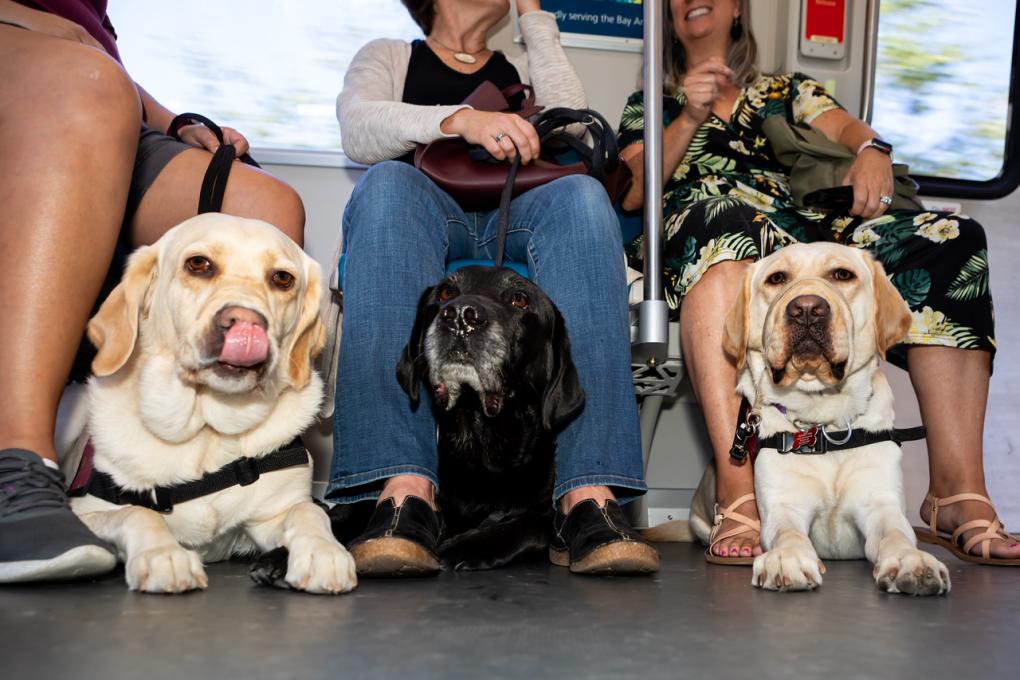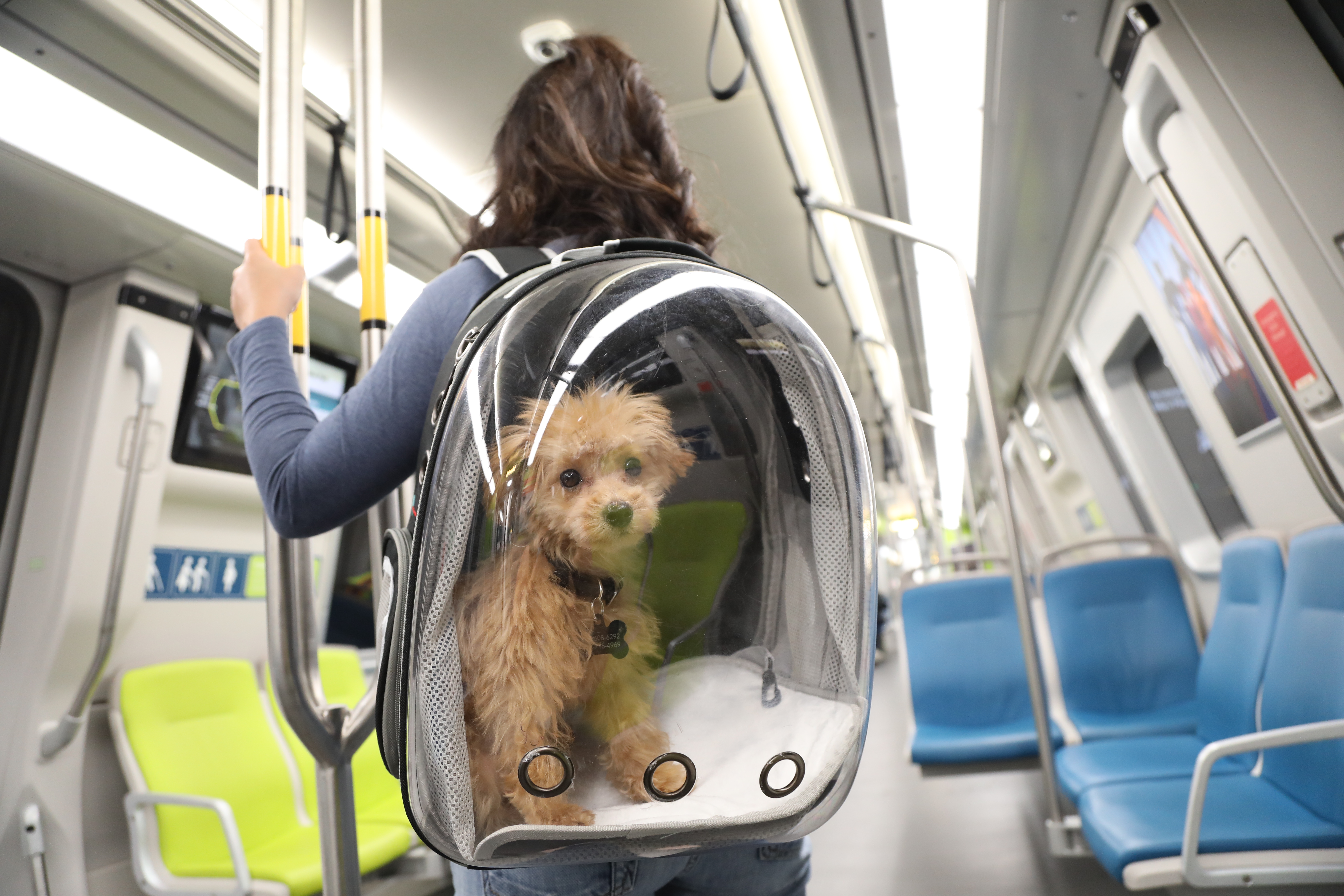
Service Animals
Service animals are defined by the Americans with Disabilities Act (ADA) as any guide dog, signal dog or other animal individually trained to work or perform tasks for an individual with a disability.
Trained service animals assisting people with disabilities follow these guidelines:
- Service animals must be on leash or harness (If a service animal does not use a leash because the service animal has been trained specifically not to use a leash, please contact BART's Access and Accessibility Department for more information.)
- Keep animals off seats and out of aisles
Service animals are working animals, not pets. The work or task a dog has been trained to provide must be directly related to the person's disability.
Note: California law also provides that service dogs in training may accompany their disabled owners or authorized trainers at BART Stations.
Dogs whose sole function is to provide comfort or emotional support do not qualify as service animals under the ADA.
Although service dogs are permitted on escalators by California law, BART recommends that people using service dogs use the elevator or stairs whenever possible.
Station Agents who believe that a particular service animal is behaving in a manner as to pose a threat to passengers can advise the owner of the service animal that the animal cannot enter the station.
BART offers free BART rides for those training service animals on the system. Arrangements must be made with BART’s Access and Accessibility Department beforehand.
Pets
All non-service pets, including dogs whose sole function is to provide comfort or emotional support, must travel in a secure, enclosed carrier specifically manufactured for transporting pets.
Dogs whose sole function is to provide comfort or emotional support do not qualify as service animals under the ADA.
No service animals in training, other than dogs, are allowed on BART on leash or harness.
